Most motorists wouldn’t go a year without a service on their car, but many retailers are failing to show the same care and consideration for their business. Instead of protecting their investment and committing to preventative maintenance of vital equipment, retailers – particularly independents – are waiting until something goes wrong before having their assets serviced, according to forecourt service providers.
Tom Ellicock, managing director of Flexiline Forecourt Services, which is now part of Torex Retail, says: “The majority of dealers don’t have a preventative maintenance inspection. Because they have a service contract, they think that’s sufficient to cover them. If dealers had preventative maintenance, they could stop the majority of emergency calls.
“How much money are retailers losing by pumps failing, compared to the cost of an annual inspection of fuel dispensers, threads on fuel pipes, grade labels and labels on the vapour recovery that costs in the region of £250? And as long as it’s in the terms of the service contract, the service provider has the liability of replacing units that he finds faulty anyway.”
Jim Savin, service operations manager at Gilbarco Veeder-Root, which services BP’s company-owned network and most of BP’s dealers, as well as all of Esso’s company-owned sites plus about 25% of Esso dealers, agrees: “If you have preventative maintenance checks once a year, you won’t have so many problems with your equipment.
“If you don’t change the drive belt on a pump, for example, it will eventually break. A lot of retailers are too reactive and downtime of their sites could be losing them money. If retailers had preventative maintenance and kept a reliable service agreement they would sell more fuel. And if you’re selling fuel, you’re also selling things in the shop.”
OUT OF ACTION
Probably the two most important assets on any forecourt are the pumps and point of sale. If the point of sale goes down, taking the pump controller with it, your site will be out of action. If a pump is out of order, queues on the forecourt could build up fast, and if it’s a small site, you might have lost the ability to serve an entire grade of fuel.
Flexiline has found that preventative maintenance on the Edacom point of sale at Petrol Express sites has increased the equipment’s reliability with failures significantly reduced. “Prior to doing the work, Petrol Express had a minimum of four sites a week going out of action due to the fact that the pos was poorly maintained and it didn’t have a preventative maintenance programme,” says Ellicock. “After the maintenance, Petrol Express had just one problem on its 38 sites in the next six months.”
The work involved replacing all on-board support batteries and cleaning out the boxes of all debris and dust because filters and fans can get clogged. But Ellicock adds: “Around 95% of cases where the forecourt operator reports an epos problem, it turns out to be a pump problem, which could have been picked up if they had some preventative maintenance on the pumps or
had the same service provider for their pos and fuel equipment.
“I suggest that dealers at least have an annual service on their fuel dispensers,” adds Ellicock. “Retailers should be making staff more aware of failures and discuss with their service provider the problems they experience in more depth. “If you’ve got a decent service provider, discuss with them how you can increase the reliability of your equipment.”
Jim Savin at Gilbarco Veeder-Root says that anything which moves or the customer touches, such as hoses or nozzles, can pose a problem to the retailer.
“Chip & pin pads are a particular problem because they’re small and people drop them or pull the wire out or spill coffee on them,” he says. “Human interaction is the biggest cause of problems because as soon as someone touches something, there’s potential for breakage.”
The level of service companies provide depends on the type of forecourt operation and requirements of the site. “For example, our engineers will do preventative maintenance on motorway sites once a week because motorway forecourts are legally bound to provide fuel 24 hours a day,” says Savin.
“A dealer in Norfolk with two pumps and 20-year-old equipment would want a five-day response contract; whereas a dealer with a big service station in London and 20 pumps would need the same sort of contract as a BP site, which might be a five-and-a half-day contract, which includes Saturday mornings.”
Other types of contract include a seven-day service, which is aimed at big forecourt groups, and a 24/7 contract for 24-hour garages with high throughput such as supermarket sites. Response times vary depending on the nature of the problem. “If the site is out of action, we will respond within four hours,” says Savin. “The cost of service contracts depends on the type of service and the amount of equipment covered.”
BE COMPETITIVE
Neglecting preventative maintenance could also open independents up to greater competition from the hypermarkets, which are realising the importance of minimising equipment failures. “Through preventative maintenance we have significantly reduced the number of failures on one hypermarket’s forecourt sites, therefore allowing greater throughput and more revenue,” says Ellicock.
The hypermarket contract covers all aspects of forecourt equipment that normally breaks down over the year such as motor belts, hoses, nozzles, spouts, and worn parts within the hydraulic housing.
Flexiline engineers are also looking at the various light tubes on each site to ensure lighting is effective for the winter.
“The hypermarket we’re working with has given us full responsibility so we monitor their reports of pump failures and look for any patterns such as individual pumps repeatedly going out of action – the site manager may not have noticed that it is often the same pump that breaks down. We then send out an engineer to investigate why it’s out of action.
“Over the past two months since we began working with the hypermarket, we have identified 10 pumps not working within its network.”
PROTECTING YOUR IMAGE
It’s not just vital forecourt equipment that needs attention. Signage and canopies also need to be kept clean and in good order if retailers are to convey a professional image to customers.
Sign installation and maintenance company XMO Strata claims that well-planned maintenance contracts can also save retailers money in the long run. Steve Martin, managing director of XMO Strata, says: “Well established maintenance contracts with professional project management systems that are reviewed periodically, enable you to spot trends.
“For example, repeat failures of certain products in certain applications; repeat health and safety risks or breaches in certain applications. You can then take timely action – having the product slightly re-engineered, perhaps, or installed slightly differently; maybe simply providing a little bit of education. You can deliver bucket-loads of cost-down benefits across a major forecourt chain by doing this well.”
Martin also advises retailers to take some control. “Whatever type of contract you have, you should include key performance data, and expect the service provider to monitor and report this regularly – otherwise, how do you know what you’re paying for?” he says.
XMO also highlights the importance of health and safety on forecourts and recommends that retailers demand proof of their contractors’ training before they let them loose on their site. “No crews should be working on forecourts without UKPIA, the forecourt safety passport issued by the Petroleum Industry Association,” says Martin. “Demand proof of their training – the best sign companies won’t have any problem with that. Every single crew should have at least one member with CSCS (the construction skills certificate), PASMA (skills certificate from the Prefabricated Access Suppliers and Manufacturers’ Association), and IPAF (the International Powered Access Federation).
“Within XMO Strata we take that a lot further and insist not just that every crew has someone with all these certificates, but that every employee has them.”
In a competitive marketplace, first impressions count for everything – a dirty, unkempt forecourt will not encourage motorists to spend money at your site; it’s likely to send them to the better kept forecourt down the road. So keeping the site clean and welcoming, free of litter, and brightly lit is just as important as making sure equipment is as reliable as it can be, reducing the chances of it going out
of action.


















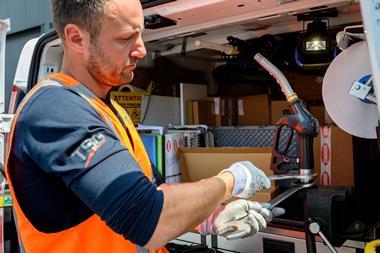

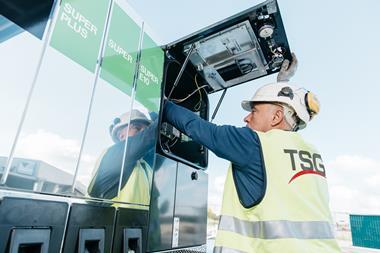
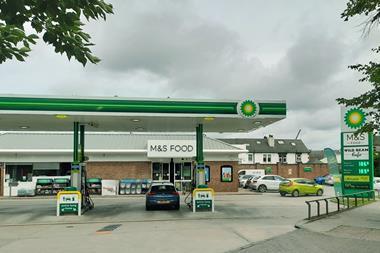
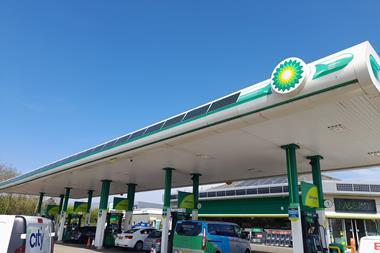

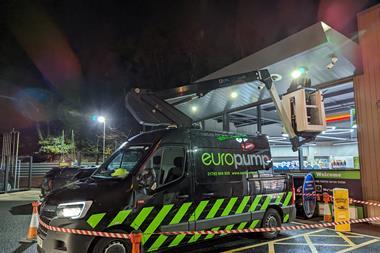
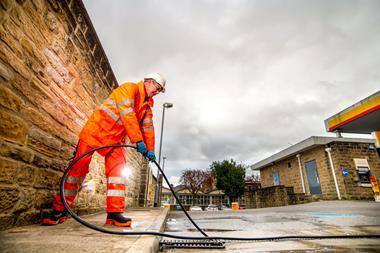
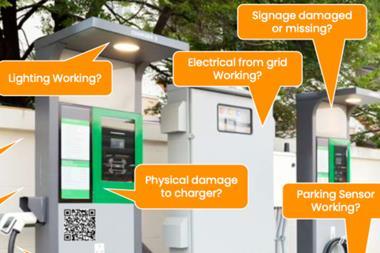
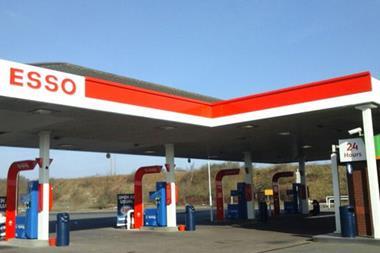
No comments yet